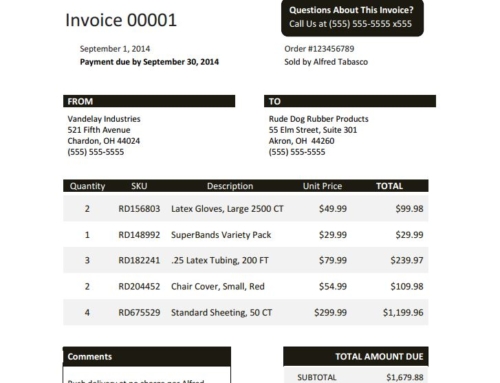No matter how automated the process of accounts receivable becomes, you’re still dealing with real people that need to pay you. There is always someone on the other end of the phone who is giving you the excuse for not paying or explaining why they need to dispute the invoice. In order to figure out the best way to deal with late payment, it is best to look at accounts receivable from a psychological stand point. Knowing how your customer’s behavior impacts their payment or non-payment can help you to avoid a crisis before it occurs. Further, understanding how your behavior can impact a customer’s payment can help you to get paid even faster.
CREATING RELATIONSHIPS
The most important part of accounts receivable is picking up the phone and talking to your customers. Send welcome letters and get in touch outside of emails every so often so you can create a relationship. By getting a feel for the customer outside of emails, you will be able to notice a change in their behavior that could indicate financial troubles. For example, if the customer starts refusing to take your calls when you used to speak frequently or an unusual argumentative attitude could mean troubled waters ahead.
UNDERSTAND WHO THE CUSTOMER IS
Once you’ve created a relationship with the customer, you will get a feel for who they are and what motivates them. If you have a customer that has a big ego, you may find that you are most successful collecting payment if you play towards his ego, telling them they are the best customer and can continue their success by paying by a certain date. On the other hand, if your customer tends to be flighty and organized, you may find that they need more hand holding. Try sending them calendar reminders for payment and offering online bill pay links in emails to make the process fool-proof.
EXTEND EMPATHY
Empathy is an emotion that can sometimes take people years to master, but it is one of the most important abilities in accounts receivable. If you are able to empathize with a customer when they are struggling, they are more likely to pay you than if you are clearly frustrated and angry. Let the customer know that you understand where they are coming from and listen to them, then introduce a new date for payment. You’ll be surprised how many are willing to pay you before any of their other vendors or invoices.
EXPLAIN THE BENEFITS OF PAYING
In a recent National Association of Credit Management Business Credit article the psychology behind benefits was explained. Most of the time, people are more shaken by the loss of a benefit than they are excited for attaining a new benefit. In accounts receivable, this means that your customers will likely be more upset if a benefit, such as a 2 percent credit for paying early, is taken away from them than gaining this achievement. Explain to the customer what they will lose out on if they don’t send in payment right away and you may see payment come in more quickly.
At first glance, accounting and psychology seem like two topics as far away from each other in similarities as possible. However, psychology plays a huge role in the reasons why people do or do not pay their invoices on time. Understanding that psychology helps the accounts receivable department to get customers to pay more quickly and more often.




